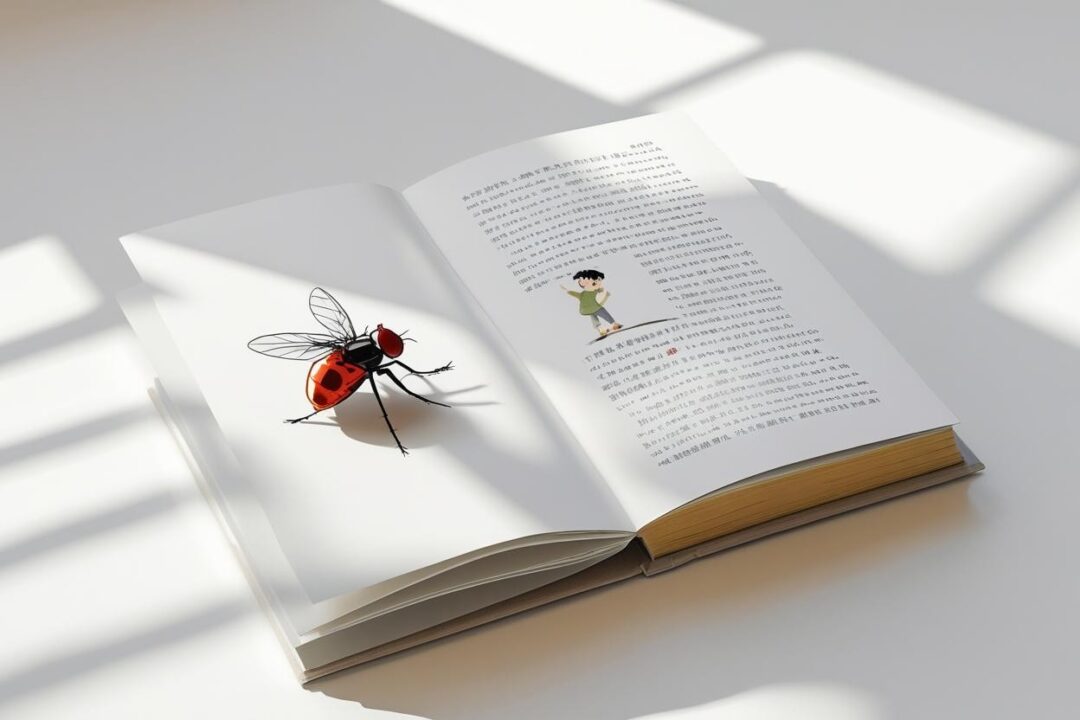There’s something undeniably captivating about the opening lines of a book. These first words hold the power to draw readers in, making them eager to turn the page and dive deeper into the story. Whether it’s a phrase that lingers in your mind long after you’ve finished the book or one that immediately sparks curiosity, opening lines are crucial in shaping a reader’s experience. In this article, we’ll explore why opening lines matter, some of the most famous first sentences in literature, and how they set the stage for the entire narrative.
Why Opening Lines Matter
When you open a book, the first sentence is your introduction to the world the author has crafted. A great opening line hooks you instantly, setting the tone and providing a glimpse of what’s to come. It’s the writer’s first opportunity to captivate you, to create intrigue, and to establish a connection. Whether it’s through simplicity, drama, or mystery, a powerful opening line can be the difference between a book that captures your attention and one that gets left on the shelf.
Opening lines often serve a bigger purpose than simply starting the story. They can introduce central themes, establish the narrative voice, or set the emotional landscape of the book. Iconic opening lines linger in readers’ memories long after the final page is turned. Let’s take a look at some of the most famous first lines that have left a lasting impact.
Iconic Opening Lines from Famous Books
1. “Call me Ishmael.” – Moby-Dick by Herman Melville
One of the most well-known opening lines in literature, Moby-Dick begins with “Call me Ishmael.” Simple yet powerful, this line immediately draws readers into the narrator’s world. It’s an invitation to learn about Ishmael and the adventure that awaits. The line’s simplicity and directness also offer a sense of mystery — why is the narrator named Ishmael? What does it mean to call him that? These questions spark curiosity and urge the reader to continue.
The line also sets the tone for the entire novel. It’s not just a story about a whale; it’s a philosophical journey. The first sentence, while brief, establishes a personal connection with the reader and hints at the introspective nature of the narrative that follows.
2. “It was a pleasure to burn.” – Fahrenheit 451 by Ray Bradbury
Ray Bradbury’s Fahrenheit 451 opens with the chilling line, “It was a pleasure to burn.” This sentence immediately sets the stage for the dystopian world of book-burning firemen, creating a sense of unease and curiosity. The line’s simplicity is what makes it so striking; it introduces a world where destruction is pleasurable, and the reader is instantly pulled into this dark, controlled society.
This opening sentence encapsulates the novel’s central themes of censorship, rebellion, and the consequences of a society that suppresses intellectual freedom. It provokes thought, creating immediate intrigue and setting the stage for the social commentary that unfolds.
3. “In a hole in the ground there lived a hobbit.” – The Hobbit by J.R.R. Tolkien
J.R.R. Tolkien’s The Hobbit opens with a charming and mysterious sentence: “In a hole in the ground there lived a hobbit.” This simple yet captivating introduction immediately transports readers to the fantastical world of Middle-earth. The idea of a hobbit living in a hole, rather than a typical human dwelling, piques curiosity, drawing readers into a world that’s both whimsical and magical.
This line works because it evokes a sense of wonder, while subtly setting the stage for the adventures that lie ahead. The unusual nature of The Hobbit, combined with Tolkien’s understated tone, sparks the imagination and prepares the reader for the adventures to come.
4. “There was a boy called Eustace Clarence Scrubb, and he almost deserved it.” – The Voyage of the Dawn Treader by C.S. Lewis
This opening line from The Voyage of the Dawn Treader introduces the character of Eustace Clarence Scrubb, a boy who is unpleasant and rather arrogant. The humor and irony in this sentence make it an instant favorite, providing a glimpse into the book’s witty and adventurous tone.
Lewis’s opening line also sets up the character arc for Eustace, foreshadowing his transformation. It’s a great example of how opening lines can introduce both the character and the emotional trajectory of the story, making readers excited to see how Eustace’s journey will unfold.
5. “All happy families are alike; each unhappy family is unhappy in its own way.” – Anna Karenina by Leo Tolstoy
Tolstoy’s famous opening line from Anna Karenina introduces a profound philosophical statement: “All happy families are alike; each unhappy family is unhappy in its own way.” This line immediately sets the tone for the novel, suggesting that the book will explore complex relationships and human emotions.
The beauty of this line lies in its simplicity and universal truth. It invites readers into the intricate world of Russian aristocracy and hints at the book’s exploration of love, family dynamics, and societal expectations. It’s a masterful introduction to a deeply emotional and nuanced narrative.
The Power of Simplicity in Opening Lines
Some of the most memorable opening lines in literature are straightforward yet impactful. They don’t need to be grandiose or filled with drama to make an impression. Take Charles Dickens’s opening to A Tale of Two Cities: “It was the best of times, it was the worst of times.” This paradoxical sentence sets the stage for the entire novel, emphasizing the themes of duality and contradiction that will define the story.
Similarly, George Orwell’s 1984 opens with a deceptively simple line: “It was a bright cold day in April, and the clocks were striking thirteen.” This sentence immediately establishes a sense of unease, with the strange notion of clocks striking thirteen hinting at the dystopian world that follows. The simplicity of the sentence contrasts with the eerie and disorienting world Orwell will build in the novel.
These lines prove that sometimes, less is more. A simple yet effective sentence can leave readers hooked and eager to discover more.
Famous Opening Lines in Popular Genres
Opening lines can vary depending on the genre, but they all serve the same purpose: to grab attention and set the tone for what’s to come. Let’s explore how opening lines function in some popular genres.
Detective/Thriller:
In detective and thriller novels, the opening line often sets the stage for suspense. For instance, in Stephen King’s The Gunslinger, the line, “The man in black fled across the desert, and the gunslinger followed,” immediately introduces the chase, creating a sense of urgency and intrigue. This line pulls readers into a world of tension and pursuit, setting the tone for the entire series.
Young Adult:
In young adult literature, opening lines often introduce a character or a conflict in a way that resonates with young readers. Suzanne Collins’s The Hunger Games begins with the line, “When I wake up, the other side of the bed is cold.” This line, while simple, hints at the bleakness of the protagonist’s life and sets the stage for the harsh, survival-driven world of the story. It’s a great example of how opening lines in YA literature can quickly establish emotional stakes.
Non-fiction:
Opening lines in non-fiction often serve to grab attention with a striking statement or a humorous insight. Bill Bryson’s A Short History of Nearly Everything begins with the line, “In the beginning, there was nothing, and then it exploded.” This lighthearted yet informative opening invites readers into an exploration of science and the universe, setting a tone that’s both fun and educational.
Conclusion: The Enduring Magic of Opening Lines
The opening lines of books are more than just introductions — they are gateways to entire worlds. From the simple elegance of Moby-Dick’s “Call me Ishmael” to the chilling introduction in Fahrenheit 451, first sentences are often what make a book unforgettable. These lines can set the tone, introduce characters, and sometimes even foreshadow the entire plot.
A great opening line is a gift that continues to resonate long after the book is finished. Whether you’re diving into a classic novel, a gripping thriller, or a thought-provoking non-fiction work, those first words are your invitation to an unforgettable journey. So, the next time you pick up a book, take a moment to appreciate its opening line. After all, it’s the first step into a world waiting to be explored.



